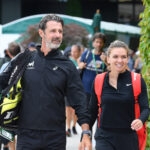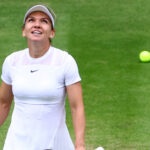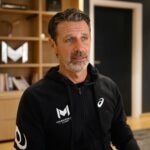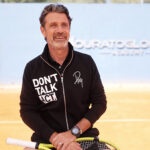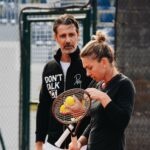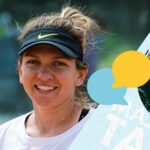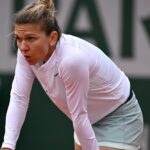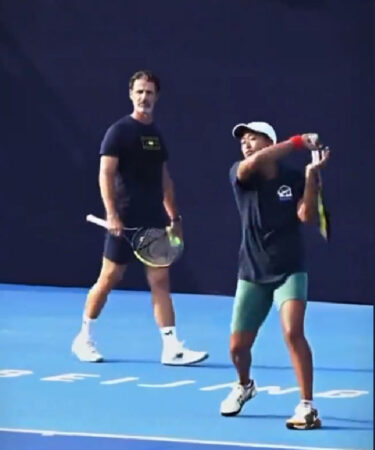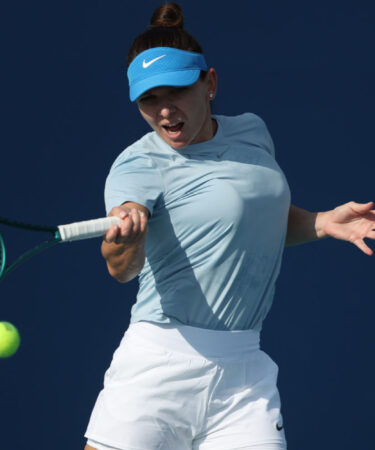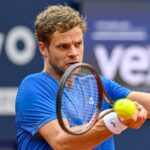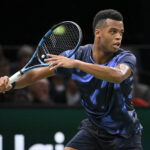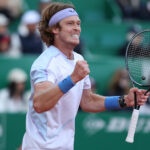Mouratoglou on Halep: “Her new game identity is very demanding mentally.”
Patrick Mouratoglou, the coach of Simona Halep, thinks that the Romanian lacked energy to find solutions against Elena Rybakina’s perfect semi-final at Wimbledon
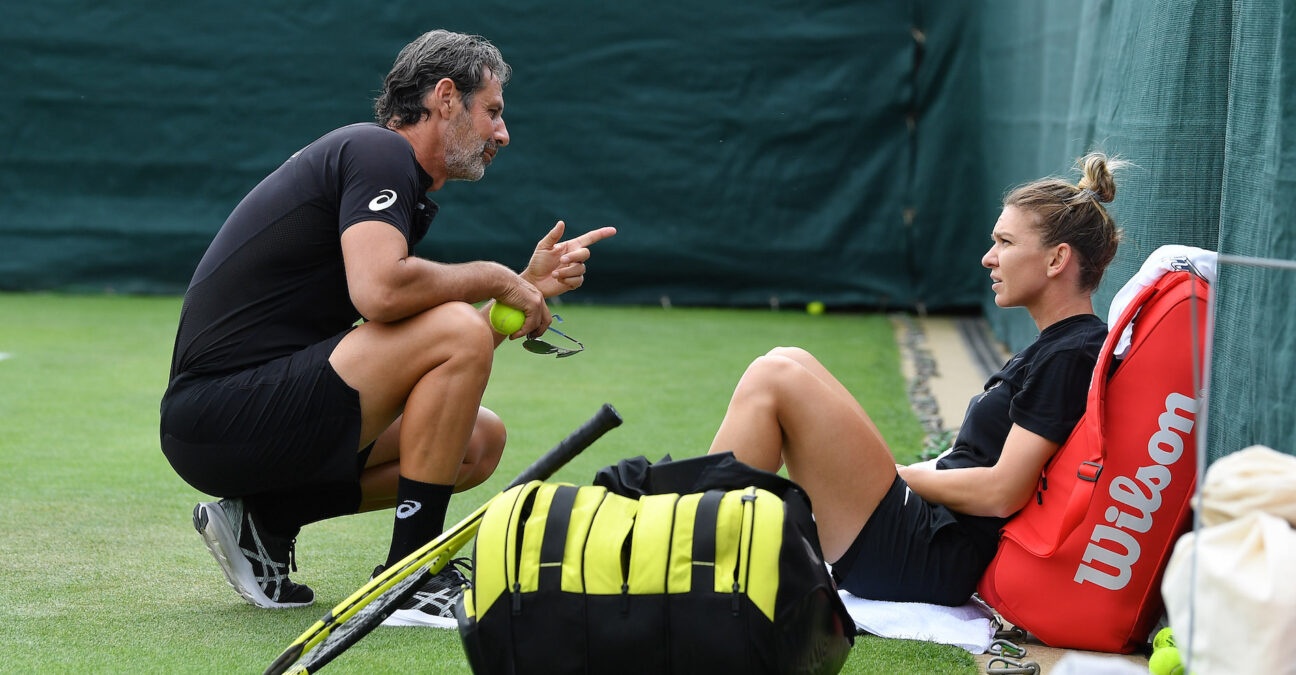 Patrick Mouratoglou and Simona Halep, Wimbledon 2022 | © Antoine Couvercelle / Panoramic
Patrick Mouratoglou and Simona Halep, Wimbledon 2022 | © Antoine Couvercelle / Panoramic
A Wimbledon final between Ons Jabeur and Simona Halep was shaping up at Wimbledon until Thursday when the Romanian was overwhelmed in the semi-final by Kazakhstan’s Elena Rybakina (6-3, 6-3). Constantly under pressure during the match, Halep never was in the situation to change the narrative. Patrick Mouratoglou (one of Tennis Majors’ co-founders), who has been coaching the two-time Grand Slam winner for three months now, tells us what happened behind the scenes. His view is that the huge amount of work done by Halep to shape a new game identity has still to be fixed.
TENNIS MAJORS : "What’s your emotional state, you, and Simona, after this defeat in Wimbledon semi-final, that looks like a cold shower after her hot run ?
Patrick Mouratoglou : Of course, it’s always difficult to lose while being two matches away from a Grand Slam crown, but she simply didn’t have her chance against a very strong opponent who, overall, played an almost-perfect match. But our spirit is still great. This loss doesn’t change anything in terms of the process. Simona was very tired physically and emotionally after four weeks in a row of competitive tennis. That was long. It was the end of this road and she struggled to find the resources needed to counterpunch such an opponent.
Did you see that coming, during the warm-up for example ?
Patrick Mouratoglou No, I didn’t but I knew Wimbledon had started to become hard (for her) emotionally speaking. This fatigue is the explanation of why she failed in finding the needed resources to respond. The resources, she has them, plenty of them. Tactically, there was options she could take, but she simply wasn’t in capacity to see them. She collapsed on her serve even if her stats on this shot are far better than before. That’s the typical process when you are tired : you can’t find the energy to try new things, you’re back to how you did before.
That’s the typical process when you are tired : you can’t find the energy to try new things
Patrick Mouratoglou
That’s what she said in her press conference : "I had three months of changing things, so probably I need more time to just fix them and to keep them every day." Can you sum up for us all those things you both changed and what she needs to fix under pressure ?
Patrick Mouratoglou Plenty, plenty of things. The general idea is to have the strongest intentions on the court, on every ball and that’s very demanding when you are not used to do that every match. How to start the point is essential in modern tennis. So we worked a lot on the serve, as she said, with some tangible outputs. Before the semi-final, if you compare with Wimbledon 2019 when she won the title, her first serve was 4 miles/hour faster and the rate of non-returned first serves by the opponent went from 22% to 37%. She has also much more intentions on the return. We decided to use her glance accuracy to make her more creative and risk-taking. She used to be able to do that on big and select matches in the past, but she tended to be more passive on an every-day basis. Now, it’s her game identity. That’s a huge change that needs time to digest. Last point, the physical aspect. We made a huge work in identifying her weak points and having a daily routine for injury prevention. She commits more than before now.
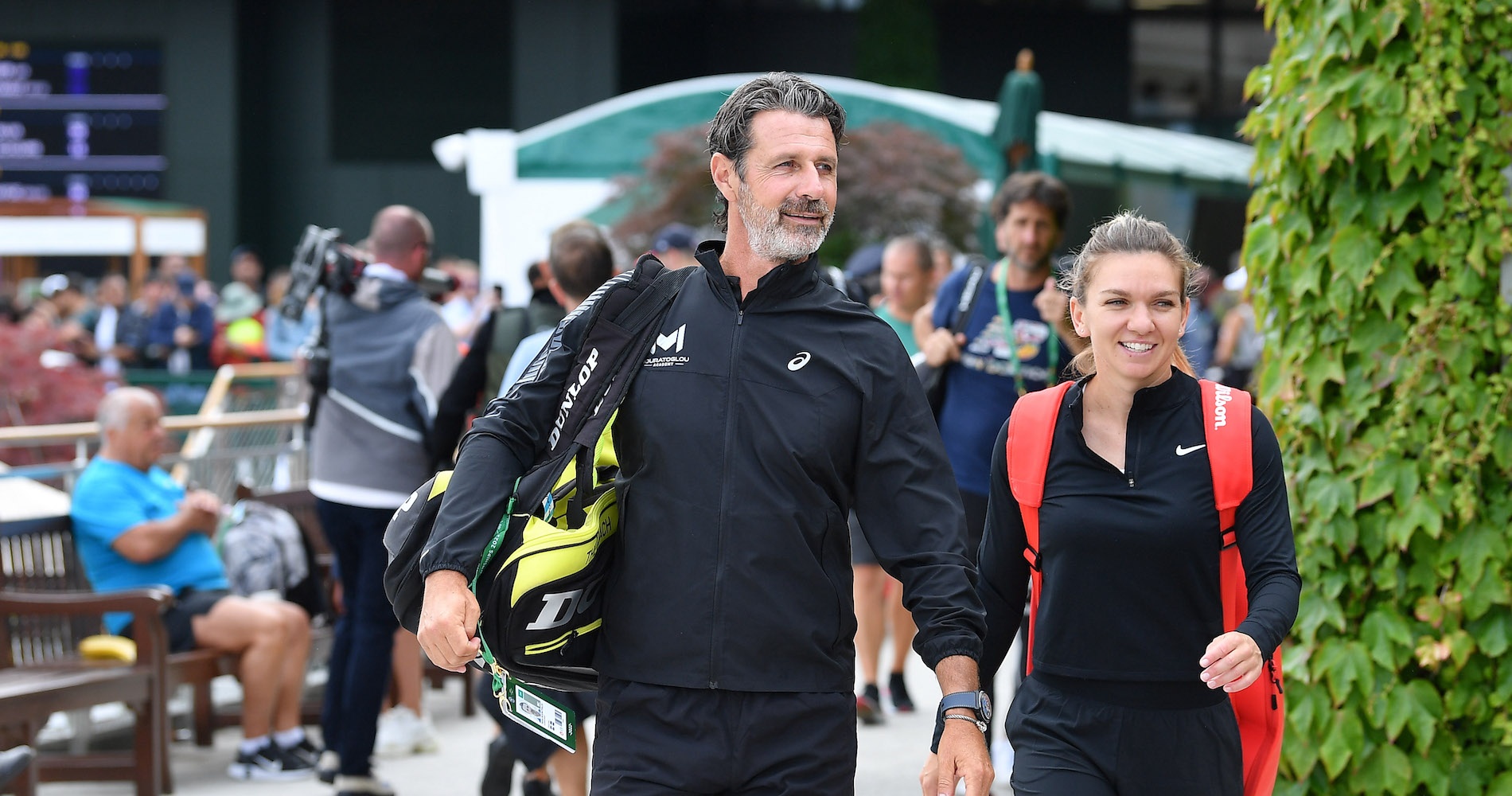
If you add Wimbledon 2019 and Wimbledon 2022, there seems to be something special when she plays on grass, a form of extra energy that leads her to a high level of performance…
Patrick Mouratoglou I’m not sure really. In 2019, she won there but it was a massive upset for her and for everybody else, so I’m not leaning to say that she is a special player on grass. For me, Simona is an overall player. No surface is better or more difficult for her than any other. I think that what she shows at Wimbledon was the output of the huge amount of work she did in the last three months, and that you would have seen that on any surface. Just, she has more intentions and she serves better : definitely something that amplify perceptions on grass.
How did you restart after her early loss at Roland-Garros, due to a panic attack, which is a very unique way to finish a big tournament…
Our goals are very clear in terms of how to play on the court, what to deliver during the training sessions and the matches. If she succeeds in doing them, good things will happen in competition.
Patrick Mouratoglou
Patrick Mouratoglou Eventually that was very useful to clarify what I’ve just talked about, on her game identity. We understood what happened. I could shift my briefs and debriefs. And we went to the conclusion that she needed to play matches and tournaments.
What's next ?
Patrick Mouratoglou : The program is clear : holidays because she needs them. Then, Washington, Toronto, Cincinnati and the US Open, with one week of practice. She already trained a lot and she is in a good rhythm. Better to compete.
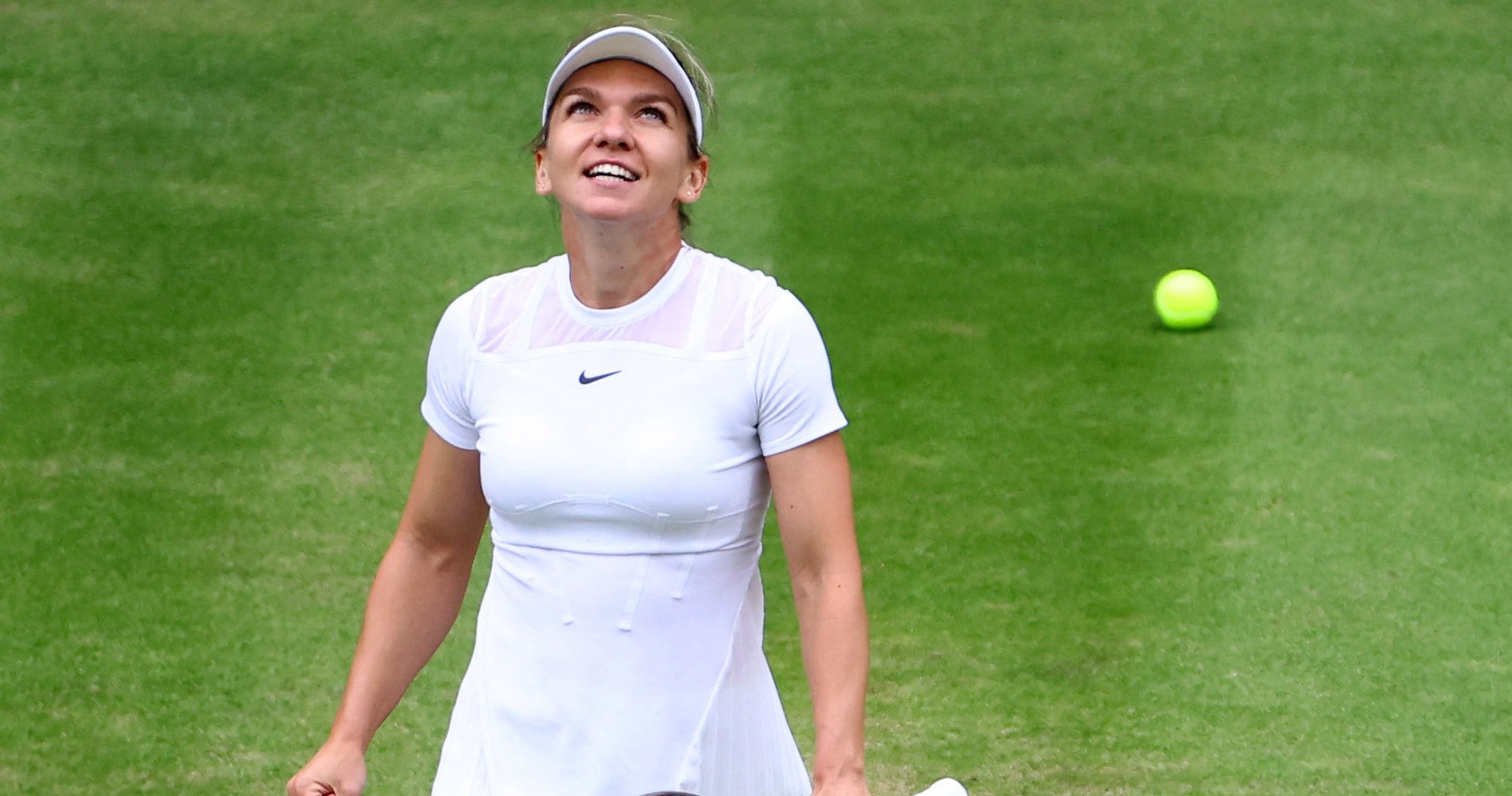
What’s your goal at the US Open and, more specifically, is she a contender for Grand Slam trophies again?
Patrick Mouratoglou : We didn’t settle on any specific goal in terms of output and we won’t. It’s not how she processes. Our goals are very clear in terms of how to play on the court, what to deliver during the training sessions and the matches. If she succeeds in doing them, good things will happen in competition. I’m not being vocal to say it’s a success already. A load of work is still remaining, but the direction is very exciting and I’m really happy of what we have been doing.
I understand she might have fixed a precise and high goal at Roland-Garros, leading to too much pressure ?
Patrick Mouratoglou : Possibly (big smile).
